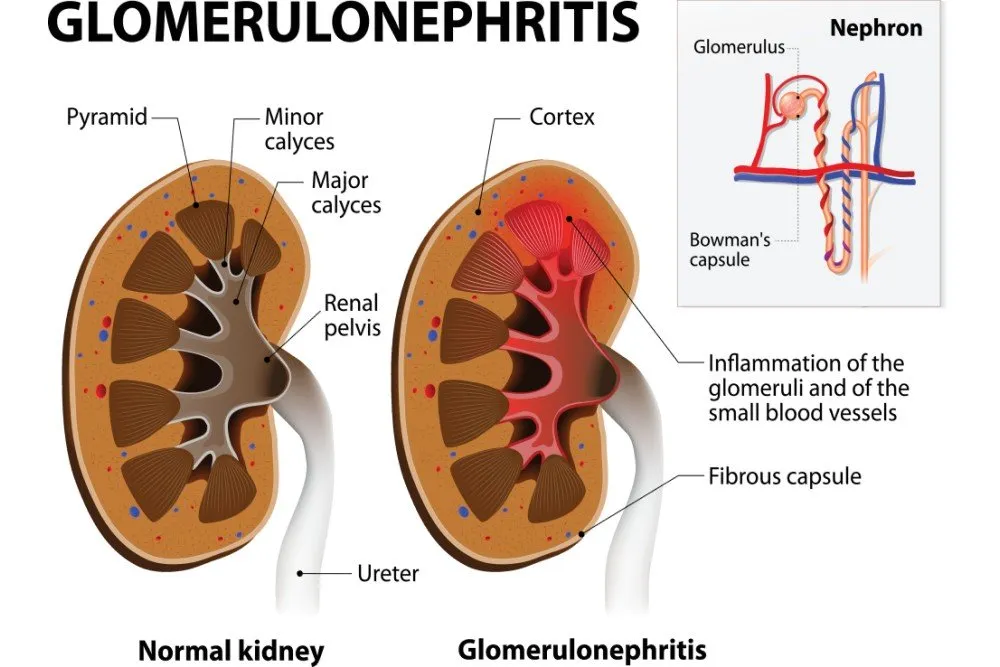Glomerulonephritis
Glomerulonephritis can develop in an acute (sudden, rapid onset) or a chronic (slow) form, and is caused by a painless inflammation of the glomerulus (the kidney filter). It can occur by itself or as part of a more general problem such as systemic lupus erythematosus (SLE).
Glomerular diseases affect the glomeruli — the tiny blood vessels that filter blood in your kidneys. When glomeruli are damaged, it disrupts the balance of protein, waste, acids, and other substances in your blood. This can lead to nephrotic syndrome, acute kidney failure (sudden loss of kidney functioning), or chronic kidney failure.
There are two types of glomerular diseases:
- Glomerulonephritis: swelling of the glomeruli tissue
- Glomerulosclerosis: hardening in the blood vessels that causes kidney scarring
Testing of the urine shows the presence of blood and protein. It is associated with high blood pressure and progressive decline of kidney function. It is diagnosed by blood tests and a kidney biopsy. High blood pressure and the presence of protein in the urine may predict the tendency towards progression. Many patients with glomerulonephritis will simply need to be followed-up each year in an outpatient setting. Others may need treatment with specific drugs to reduce inflammation




